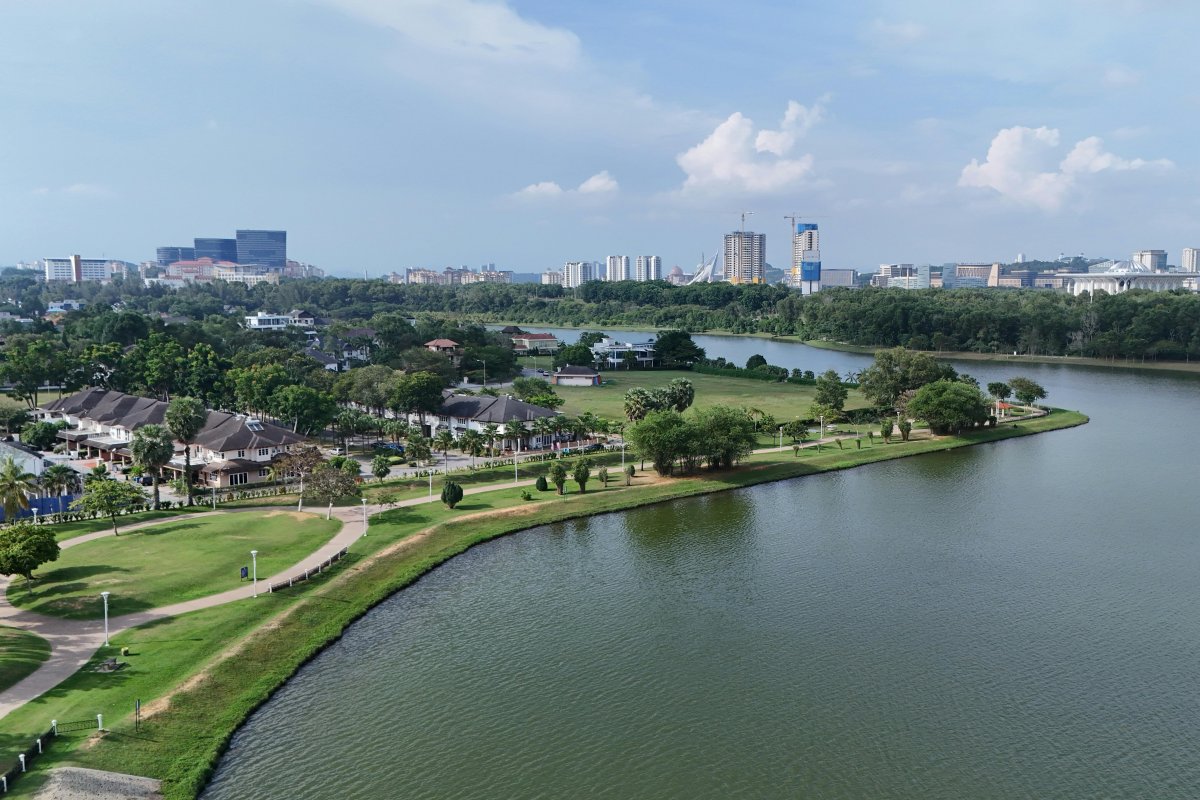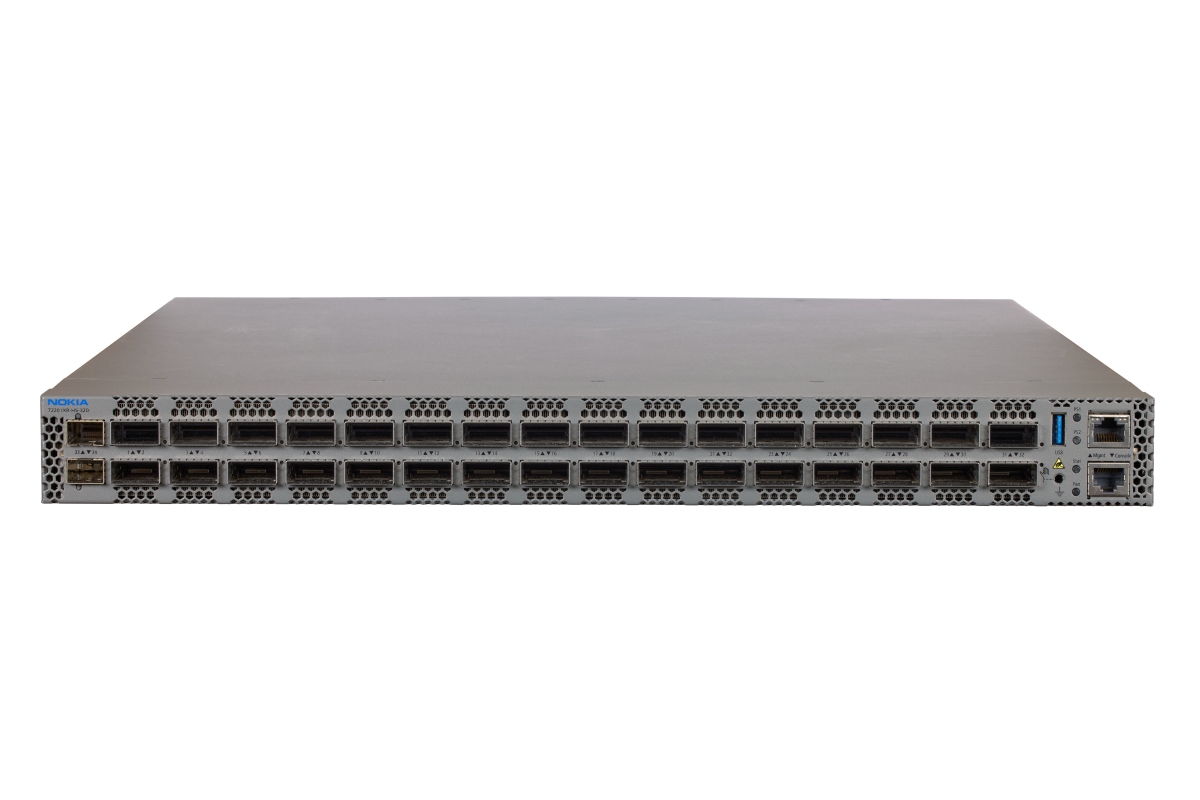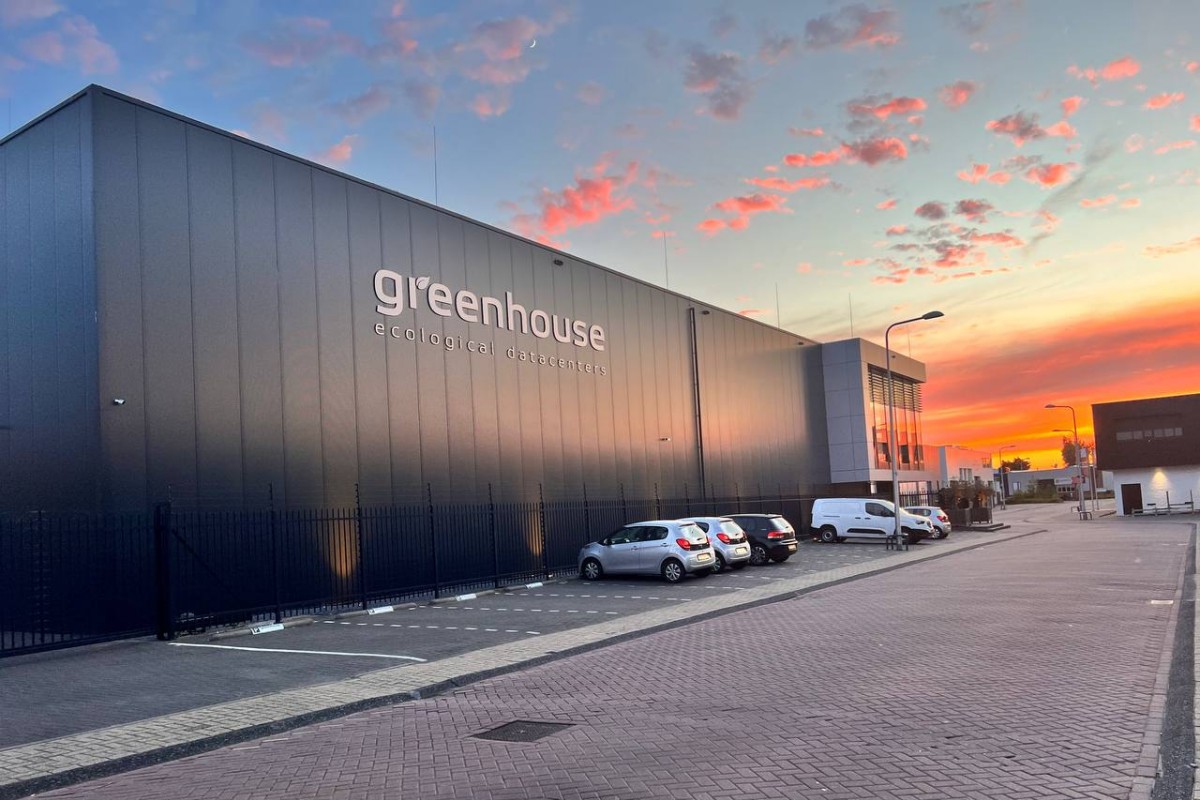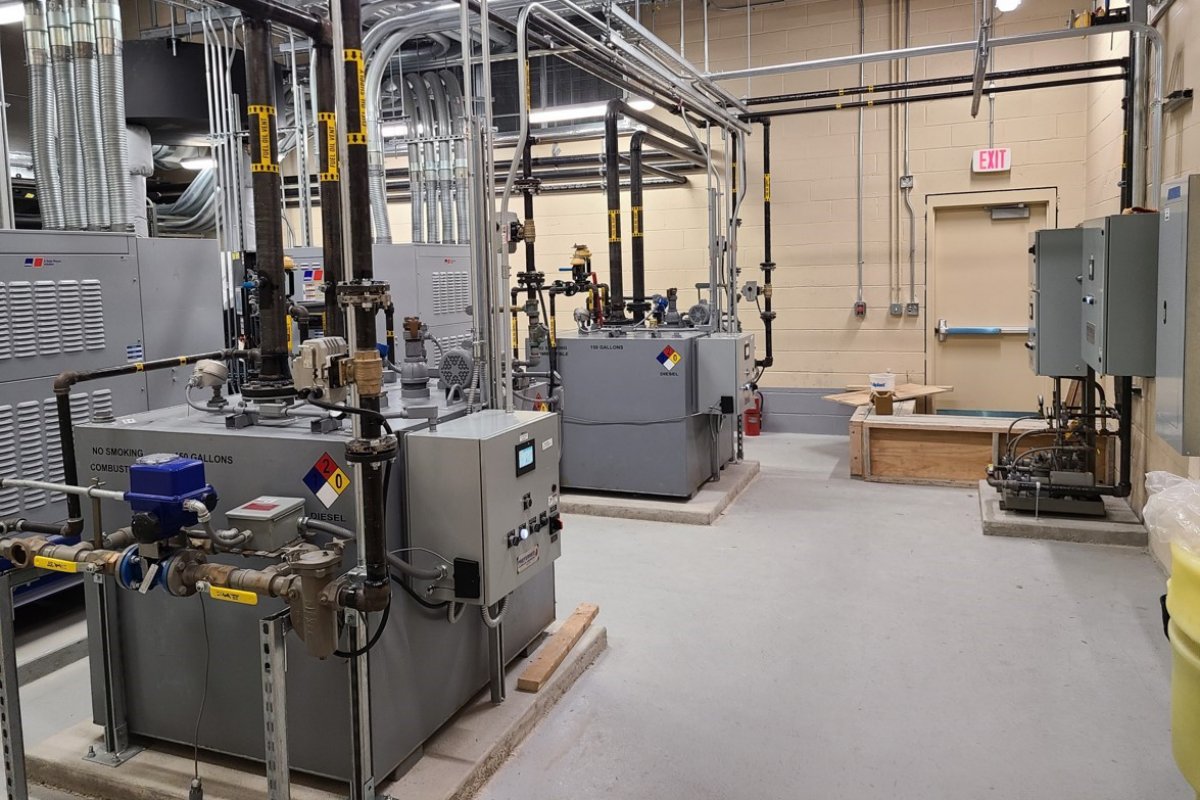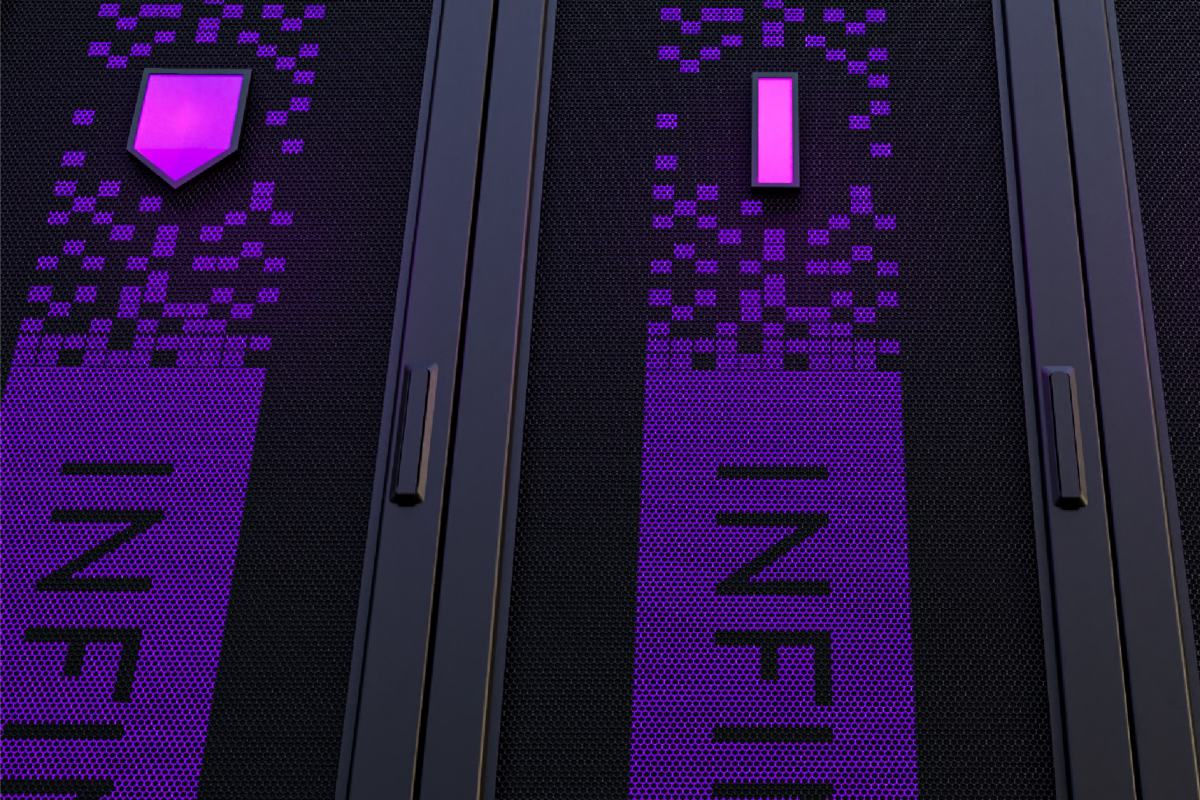Data Centre Infrastructure News & Trends
Data Centre Infrastructure News & Trends
Enterprise Network Infrastructure: Design, Performance & Security
News
DE-CIX Malaysia extends reach with NTT DATA partnership
Internet exchange (IX) operator DE-CIX Malaysia has announced the launch of its full suite of interconnection services at NTT DATA’s CBJ1 data centre in Cyberjaya, marking a further expansion of Malaysia’s digital infrastructure and the country’s role as a regional connectivity hub.
The partnership represents the first local collaboration between DE-CIX Malaysia and NTT Global Data Centres, following successful projects in other international markets.
It aims to enhance interconnection options for enterprises, internet service providers (ISPs), cloud providers, and content delivery networks (CDNs) across Southeast Asia.
Expanding interconnection capacity in Cyberjaya
The collaboration enables customers at NTT DATA’s Cyberjaya facility to access DE-CIX’s peering, cloud exchange, and virtual private network interconnection (VPNI) services.
These include premium peering through GlobePEER, direct cloud connectivity via DirectCLOUD, and Blackholing for DDoS mitigation.
Weng-Yew Wong, Member of the Board of Management at DE-CIX Malaysia, comments, “This partnership is a strategic move to bring DE-CIX’s interconnection services closer to Malaysia’s enterprises.
"By enabling our platform at NTT Global Data Centres’ Cyberjaya site, we are expanding the region’s digital ecosystem and offering greater reach, security, and reliability.”
The collaboration will also allow NTT Global Data Centres to attract additional network-focused tenants, including enterprise and hyperscale operators.
Yasuo Suzuki, Managing Director, APAC, NTT Global Data Centres, says, “This collaboration reflects our ongoing efforts to bring strategic partners such as DE-CIX into our facilities to enhance connectivity and performance for our clients.
"The presence of DE-CIX in our Cyberjaya campus offers improved access to cloud platforms and digital services with minimal latency.”
Strengthening Malaysia’s digital ecosystem
Cyberjaya has become one of Malaysia’s leading technology hubs, offering high-capacity power, fibre connectivity, and a growing community of network-based enterprises.
DE-CIX’s presence at NTT DATA’s CBJ1 data centre provides immediate access to its global interconnection platform via secure ethernet cross-connects and VLAN tagging, supporting low-latency connectivity to international networks.
The companies say the collaboration will contribute to the development of resilient, scalable digital infrastructure across Malaysia and strengthen interconnection routes between Asia, Europe, and the United States.
For more from DE-CIX, click here.
Joe Peck - 7 October 2025
Data Centre Infrastructure News & Trends
Enterprise Network Infrastructure: Design, Performance & Security
News
GNM launches new PoP in Warsaw
GNM (Global Network Management), a backbone internet provider and telecom operator, has launched a new Point of Presence (PoP) at LIM DC in Warsaw, Poland.
The new site joins the company’s existing PoPs at Equinix WA1 in Warsaw and 4DC in Katowice, expanding GNM’s footprint in Central Europe.
Together, these sites position Poland as a key hub in GNM’s network, directly connected with Germany, Czechia, Ukraine, and other markets in the region.
The Warsaw PoP delivers GNM’s full service portfolio, including IP Transit with Tier-1 upstreams, DWDM up to 400G, peering with over 650 ASNs via GNM-IX, ethernet and L2VPN transport, and Remote IX for access to major European exchanges.
Krzysztof Krasuski, Head of Region at GNM, comments, “With the launch of our node in LIM DC, Poland is becoming the heart of our Central European network and we are committed to expanding services and connectivity options for all operators in the region.”
GNM’s backbone interconnects more than 80 PoPs in 21 countries over 20,000km of optical infrastructure, supporting resilient, low-latency connectivity for carriers, ISPs, and content providers across Europe.
For more from GNM, click here.
Joe Peck - 6 October 2025
Data Centre Infrastructure News & Trends
Enterprise Network Infrastructure: Design, Performance & Security
News
Nokia, Keysight complete UET test for AI data centres
Finnish telecommunications company Nokia, in collaboration with Keysight Technologies, a US manufacturer of electronic test and measurement equipment and software, has completed end-to-end testing of ultra ethernet (UET) traffic across its data centre switching platforms, including the 7220 and 7250 Interconnect Routers (IXR).
The test demonstrates Nokia’s integration of Ultra Ethernet Consortium (UEC) Specification 1.0 features into its networking portfolio, designed to support high-performance computing (HPC) and AI workloads.
It marks a step towards lossless, low-latency, large-scale data centre networks built for the demands of AI infrastructure.
Testing UET for next-generation network performance
The UEC Specification 1.0 defines a new ethernet layer optimised for HPC and AI environments, aiming to reduce latency and packet loss while maintaining interoperability across network architectures.
The joint test between Nokia and Keysight used 800 Gigabit ethernet interfaces with UET traffic generated via Keysight’s AresONE 800GE platform.
The network spanned Nokia’s 7220 IXR-H5 and 7250 IXR-10e systems, operating with the SR Linux network operating system.
According to Nokia, the test also validated coexistence with Remote Direct Memory Access over Converged Ethernet (RoCEv2) and Data Centre Quantised Congestion Notification (DCQCN) technologies, both already supported in its switching platforms.
Ram Periakaruppan, Vice President and General Manager of Network Applications and Security at Keysight Technologies, comments, “Networking technologies are evolving rapidly to meet the demands of large-scale AI clusters.
"Ultra ethernet is one of the approaches under active development, enabling the next generation of scale-out fabrics.
"Our collaboration with Nokia represents a key milestone in validating interoperability and accelerating adoption across the AI networking ecosystem.”
Rudy Hoebeke, Vice President of Software Product Management at Nokia, adds, “AI is redefining expectations for data centre network performance.
"This successful demonstration with Keysight of UET traffic over Nokia’s switching platforms underlines our commitment to the UEC initiative and reinforces our role in shaping the future of HPC and AI networking.”
For more from Nokia, click here.
Joe Peck - 6 October 2025
Data Centre Infrastructure News & Trends
Enterprise Network Infrastructure: Design, Performance & Security
News
Ooredoo, DE-CIX launch Qatar’s first commercial IX
Qatari telecommunications company Ooredoo, in partnership with internet exchange (IX) operator DE-CIX, has launched Doha IX, Qatar’s first commercial IX. The new exchange, hosted in Ooredoo’s data centre, is now live with its first connected networks.
Doha IX is designed to serve as a secure interconnection hub, enabling traffic exchange between regional and global cloud providers, content networks, internet service providers, and hyperscale platforms.
By facilitating direct interconnection, the exchange aims to improve network performance through lower latency while reducing costs for operators.
Connectivity and cloud integration
The platform offers a data-centre-neutral environment, allowing customers to connect to multiple internet service providers (ISPs), content delivery networks, and cloud platforms via a single port. It also provides direct access to DE-CIX’s global interconnection ecosystem.
As part of its service offering, Doha IX enables direct connections to Microsoft Azure Peering Service, giving government and enterprise users in Qatar private access to Microsoft services such as Teams and Outlook.
The exchange is also a Verified Peering Provider for Google Cloud and Workspace, supporting secure connectivity to Google’s enterprise applications.
Through this ecosystem, businesses and service providers can deliver content more efficiently to Qatar’s user base, while international networks gain a direct path to serve the local market.
Thani Ali I A Al-Malki, Chief Business Officer at Ooredoo Qatar, comments, “We are proud to launch Doha IX in collaboration with DE-CIX - a milestone that redefines Qatar’s digital landscape.
"Doha IX delivers world-class interconnection, empowering businesses, ISPs, and content providers with faster, smarter, and more secure access to global content.
"This initiative marks a significant step in driving Qatar’s digital transformation and strengthening its role as a regional connectivity hub.”
Ivo Ivanov, CEO of DE-CIX, adds, “With Doha IX powered by DE-CIX, we are bringing DE-CIX’s global expertise to Qatar, enabling businesses and networks to benefit from superior interconnection services.
"Doha IX is the ideal place for international networks interested in reaching this important Middle Eastern market.
"The new IX will unleash the potential of the country’s digital economy by providing better performance and user experience of content and applications, and affordable and high-quality internet access for enterprises and individuals.”
Doha IX forms part of Qatar’s wider digital development goals under National Vision 2030, aiming to position the country as a regional connectivity hub.
Alongside Ooredoo’s wider service portfolio - including IP Transit, Multi-Cloud Connect, hosting, co-location, and international connectivity - the new exchange is expected to play a role in supporting business innovation and economic growth.
For more from DE-CIX, click here.
Joe Peck - 3 October 2025
Data Centre Infrastructure News & Trends
Enterprise Network Infrastructure: Design, Performance & Security
News
IOEMA subsea cable to land in the Netherlands
The IOEMA Project, which plans to lay subsea fibre optic cables in Northern Europe, has selected Greenhouse Datacenters as an additional landing partner for the landing of the IOEMA subsea cable in Scheveningen (Rotterdam / The Hague area).
This marks the seventh landing point in Northern Europe and the second in the Netherlands for the IOEMA cable. The first Dutch landing will be at Eemshaven, in the country’s northern region.
The project
The IOEMA project is establishing an AI-ready, high-capacity fibre optic connection between the five key Northern European markets.
The Netherlands, Germany, the United Kingdom, Denmark, and Norway will be directly connected via a 1,600-kilometre repeatered subsea cable, with further connectivity to France under consideration.
IOEMA is taking international tensions and security into account by fully armouring and protecting the subsea cable system over its entire length. IOEMA is also considering adding sensors to the system to make it the first SMART cable in Northern Europe.
IOEMA is collaborating on this initiative with partners including Eurofiber, Arelion, Colt, EXA Infrastructure, Relined, Bulk, and EWE TEL.
The latest collaboration with Greenhouse Datacenters is driven in part by its strategic South Holland location, just 12 kilometres from where the subsea cable from the North Sea comes ashore in Scheveningen (Rotterdam / The Hague).
Eckhard Bruckschen, CTO of IOEMA Fibre, says, “We are pleased to announce an additional landing partner for the second Dutch landing point for the IOEMA fibre optic cable in the Netherlands, in the Rotterdam / The Hague area.
"By partnering with Greenhouse Datacenters, IOEMA connects directly into a rich connectivity ecosystem, including an on-site AMS-IX PoP. This makes the IOEMA cable accessible to the broader market in South Holland and beyond.
"Organisations in this area can benefit from ultra-fast, redundant, secure, and AI-ready connections to other internet hubs in Northern Europe via Greenhouse."
A new digital hub
Greenhouse Datacenters CEO Ruben van der Zwan says the selection of Greenhouse as landing partner for the IOEMA subsea cable highlights the strategic importance of its data centres for the Dutch South Holland region and the Netherlands as a whole.
“The Axiom/Terabit report, Study on the development of the submarine cable market, which was recently on the agenda of the Dutch House of Representatives, extensively examined the strategic national importance of new submarine cables for the Netherlands,” comments Ruben.
“The deployment of new submarine cables contributes significantly to stimulating the digital business climate in the Netherlands. Together with data centres and internet exchanges, submarine cables form the basis for further economic development of the Netherlands as an international digital hub."
Rick Pijpers, who is involved in the project as a strategic advisor via PWDR.AI, adds, “The landing station for the subsea cable at Greenhouse is much more than a technical facility; it is a strategic digital hub.
"A data centre that functions as a landing station becomes a gateway to international data traffic, attracting ecosystems of carriers, cloud providers, and enterprises, thereby strengthening the digital economy.
"For Greenhouse and IOEMA, this not only strengthens their own position, but also boosts international connectivity between Norway, Denmark, the United Kingdom, the Netherlands, and Belgium. It creates a new sovereign AI corridor connecting the locations where AI factories will be established in the coming years."
According to Peter van Burgel, CEO of AMS-IX, the landing of the subsea cable in Greenhouse’s data centres in the Rotterdam / The Hague area will strengthen the AMS-IX Point-of-Presence located there.
He argues, “This makes Greenhouse a powerful digital hub and an important alternative to the Amsterdam data centre market. Enhanced by AI applications, the IOEMA subsea cable will bring huge amounts of international network traffic to Greenhouse, while the existing AMS-IX PoP will enable direct exchange with international and regional carrier, cloud, ISP, and content networks.
"This will deliver speed, redundancy, and cost efficiency in digital traffic, reinforcing the South Holland region as a digital hub for AI-driven growth."
For more from IOEMA, click here.
Joe Peck - 3 October 2025
Data Centre DCIM Solutions & Best Practices
Data Centre Infrastructure News & Trends
Events
Evocative to participate at National DICE event
Evocative, a global provider of internet infrastructure, announces that Jay Smith, its Vice President, Data Center Operations and Engineering, is participating on a panel at National DICE Data Center Management, Operations and Cooling - West.
The panel, entitled Data Centre Operations and Management: Navigating the Future of Facility Optimisation and Infrastructure Management, is taking place on Thursday, 2 October 2025 in California, USA.
Jay and other industry executives will explore how data centre tools like data centre infrastructure management (DCIM) are becoming pivotal for modern data centres as they leverage integration with AI, automation, and sustainability features to meet growing operational demands.
The company says Jay will call on his experience leading the operations at Evocative’s US-wide footprint of interconnected, carrier-neutral data centres to inform his perspective.
On the panel, he will draw on this experience to discuss topics such as the best tools available to streamline operations and increase efficiency, managing the increasing complexity of IT infrastructure, and preparing for the rapid growth of AI-ready infrastructure.
The panel and event
What: "Data Centre Operations and Management: Navigating the Future of Facility Optimisation and Infrastructure Management"
Where: Santa Clara Marriott: 2700 Mission College Blvd, Santa Clara, CA 95054
When: Thursday, 2 October 2025 | 8:30 am - 9:10 am PT
Who: Panel members include:
· Jay Smith, Vice President, Data Center Operations and Engineering at Evocative· Stephanie Silva, Cloud Supply Chain and Operations (CSCO) at Google· Clae Anderson, Director, IT Support at Kaiser Permanente
For more from Evocative, click here.
Joe Peck - 2 October 2025
Data Centre Architecture Insights & Best Practices
Data Centre Infrastructure News & Trends
Exclusive
Innovations in Data Center Power and Cooling Solutions
Rethinking fuel control
In this exclusive article for DCNN, Jeff Hamilton, Fuel Oil Team Manager at Preferred Utilities Manufacturing Corporation, explores how distributed control systems can enhance reliability, security, and scalability in critical backup fuel infrastructure:
Distributed architecture for resilient infrastructure
Uninterrupted power is non-negotiable for data centres to provide continuity through every possible scenario, from extreme weather events to grid instability in an ageing infrastructure. Generators, of course, are central to this resilience, but we must also consider the fuel storage infrastructure that powers them. The way the fuel is monitored, delivered, and secured by a control system ultimately determines whether a backup system succeeds or fails when it is needed most.
The risks of centralised control
A traditional fuel control system typically uses a centralised controller such as a programmable logic controller (PLC) to manage all components. The PLC coordinates data from sensors, controls pumps, logs events, and communicates with building automation systems. Often, this controller connects through hardwired, point-to-point circuits that span large distances throughout the facility.
This setup creates a couple of potential vulnerabilities:
1. If the central controller fails, the entire fuel system can be compromised. A wiring fault or software error may take down the full network of equipment it supports.
2. Cybersecurity is also a concern when using a centralised controller, especially if it’s connected to broader network infrastructure. A single breach can expose your entire system.
Whilst these vulnerabilities may be acceptable in some industrial situations, modern data centres demand more robust and secure solutions. Decentralisation in control architecture addresses these concerns.
Distributed logic and redundant communications
Next-generation fuel control systems are adopting architectures with distributed logic, meaning that control is no longer centralised in one location. Instead, each field controller—or “node”—has its own processor and local interface. These nodes operate autonomously, running dedicated programs for their assigned devices (such as tank level sensors or transfer pumps). These nodes then communicate with one another over redundant communication networks.
This peer-to-peer model eliminates the need for a master controller. If one node fails or if communication is interrupted, others continue operating without disruption. This means that pump operations, alarms, and safety protocols all remain active because each node has its own logic and control.
This model increases both uptime and safety; it also simplifies installation. Since each node handles its own logic and display, it needs far less wiring than centralised systems. Adding new equipment involves simply installing a new node and connecting it to the network, rather than overhauling the entire system.
Built-in cybersecurity through architecture
A system’s underlying architecture plays a key role in determining its vulnerability to cybersecurity hacks. Centralised systems can provide a single entry point to an entire system.
Distributed control architectures offer a fundamentally different security profile. Without a single controller, there is no single target. Each node operates independently and the communication network does not require internet-facing protocols. In some applications, distributed systems have even been configured to work in physical isolation, particularly where EMP protection is required.
Attackers seeking to disrupt operations would need to compromise multiple nodes simultaneously, a task substantially more difficult than targeting a central controller. Even if one segment is compromised or disabled, the rest of the system continues to function as designed. This creates a hardened, resilient infrastructure that aligns with zero-trust security principles.
Safety and redundancy by default
Of course, any fuel control system must not just be secure; it must also be safe. Distributed systems offer advantages here as well. Each node can be programmed with local safety interlocks. For example, if a tank level sensor detects overfill, the node managing that tank can shut off the pump without needing permission from a central controller.
Other safety features often include dual-pump rotation to prevent uneven wear, leak detection, and temperature or pressure monitoring with response actions. These processes run locally and independently. Even if communication between nodes is lost, the safety routines continue.
Additionally, touchscreens or displays on individual nodes allow on-site personnel to access diagnostics and system data from any node on the network. This visibility simplifies troubleshooting and provides more oversight of real-time conditions.
Scaling with confidence
Data centres require flexibility to grow and adapt. However, traditional control systems make changes like upgrading infrastructure, increasing power, and installing additional backup systems costly and complex, often requiring complete rewiring or reprogramming.
Distributed control systems make scaling more manageable. Adding a new generator or day tank, for example, involves connecting a new controller node and loading its program. Since each node contains its own logic and communicates over a shared network, the rest of the system continues operating during the upgrade. This minimises downtime and reduces installation costs.
Some systems even allow live diagnostics during commissioning, which can be particularly valuable when downtime is not an option.
A better approach for critical infrastructure
Data centres face incredible pressure to deliver continuous performance, efficiency, and resilience. Backup fuel systems are a vital part of this reliability strategy, but the way these systems are controlled and monitored is changing. Distributed control architectures offer a smarter, safer path forwards.
Preferred Utilities Manufacturing Corporation is committed to supporting data centres to better manage their critical operations. This commitment is reflected in products and solutions like its Preferred Fuel System Controller (FSC), a distributed control architecture that offers all the features described throughout this article, including redundant, masterless/node-based communication, providing secure, safe, and flexible fuel system control. With Preferred’s expertise, a distributed control architecture can be applied to system sizes ranging from 60 to 120 day tanks.
Joe Peck - 2 October 2025
Cyber Security Insights for Resilient Digital Defence
Data Centre Infrastructure News & Trends
Data Centre Security: Protecting Infrastructure from Physical and Cyber Threats
Enterprise Network Infrastructure: Design, Performance & Security
Macquarie, Netskope partner on network security in Australia
Macquarie Telecom, an Australian provider of data centres, cloud services, cybersecurity, and telecommunications, part of Macquarie Technology Group, has announced a partnership with Netskope to simplify how Australian organisations secure and manage data, cloud, and AI applications.
The collaboration combines Netskope’s Security Service Edge (SSE) platform with Macquarie Telecom’s software-defined wide area network (SD-WAN). Together, these form a Secure Access Service Edge (SASE) framework, offering integrated networking and security functions for organisations adopting cloud services and AI.
Addressing cybersecurity pressures
Australian businesses have faced repeated data breaches in recent years, prompting tighter cybersecurity regulation and greater demands on IT teams.
The partnership aims to provide unified security and network management, helping organisations protect users and data across different environments.
Netskope’s platform consolidates web, data, cloud, and AI security into a single system, designed to reduce costs and balance protection with performance. It is IRAP-assessed at the PROTECTED level for use within Australian Government departments and critical industries.
The combined service also supports compliance with the Security of Critical Infrastructure (SOCI) Act and the Essential Eight framework.
Luke Clifton, Group Executive for Macquarie Telecom, says, “Organisations big and small are under immense pressure to strengthen their cyber defences while keeping operations simple and manageable.
"By joining forces with Netskope, we’re giving customers a smarter, more resilient network backed by integrated, enterprise-grade security. They’re getting the best of both worlds.”
Tony Burnside, Senior Vice President and Head of APAC at Netskope, adds, “Modern networks need to be both fast and secure, but many organisations are still having to accept trade-offs between performance and security.
"Networking and security consolidation is now a cornerstone of the demands of modern business, and through this partnership with Macquarie Telecom, we will help more Australian organisations unlock enhanced levels of data security.”
Netskope already works with Macquarie Government, Macquarie Telecom’s sister company, to deliver SASE technology to federal government customers. The new partnership expands that collaboration into the wider business sector.
For more from Macquarie Telecom, click here.
Joe Peck - 1 October 2025
Data Centre Business News and Industry Trends
Data Centre Infrastructure News & Trends
Enterprise Network Infrastructure: Design, Performance & Security
Insights into Data Centre Investment & Market Growth
Turkish interconnection market projected to double by 2030
According to a new study by DStream Group, commissioned by internet exchange (IX) operator DE-CIX, Istanbul is emerging as a global digital hub and a key interconnection point for data traffic between Europe, the Middle East, and Central Asia.
The findings were published to mark the tenth anniversary of DE-CIX Istanbul, Turkey’s largest neutral internet exchange.
Over the past decade, the country has moved from a fragmented digital landscape to one of regional integration and growing global importance.
Istanbul’s role as a digital hub
The study highlights that Turkey has made notable progress in digital infrastructure, with Istanbul at the forefront. A combination of location, an expanding internet exchange market, and rising demand for data services has strengthened the city’s role in regional connectivity.
Istanbul’s data centre market is also expanding, supported by demand for cloud services, digital transformation, content delivery, and wider internet penetration. The report forecasts that the city’s interconnection market will exceed 150 networks and carry multi-terabit-per-second traffic by 2030, nearly double today’s levels.
Turkey’s position as a land bridge between Europe and Asia offers additional resilience for international connectivity. Nationwide fibre coverage and submarine cable systems landing in the country link directly with more than 20 neighbours, creating alternative routes for data flows.
Land-based connections also provide redundancy to European submarine routes, strengthening reliability.
Other cities, including Ankara, Izmir, and Van, are also emerging as infrastructure hubs, contributing to a more distributed national network.
DE-CIX Istanbul’s role
Established in 2015, DE-CIX Istanbul is the country’s first and largest neutral internet exchange, enabling low-latency data exchange between more than 60 networks. The exchange now operates across over ten colocation sites in the city, providing geographic redundancy.
According to DE-CIX, 93% of international networks in Istanbul peer through its platform. This has attracted global operators, encouraged development of land-based routes, and most recently supported the launch of an AWS cloud onramp in the city.
Bülent Sen, Regional Director of DE-CIX Türkiye, says, “Turkey is no longer just a gateway; it’s becoming a destination for digital investment. We are already seeing massive growth at the exchange.
"In early August, the IX surpassed 500 Gbit/s of throughput for the first time, and in September 2025, peak traffic exceeded 533 Gbit/s - up 42% since the start of the year. We expect this trend to continue, driven by the adoption of artificial intelligence, which many businesses now rank as a top investment priority.”
Looking to the next decade, DE-CIX predicts that AI and satellite internet will reshape demand for connectivity.
Ivo Ivanov, CEO of DE-CIX, adds, “With a commitment to neutrality, DE-CIX Istanbul is poised to anchor regional data flows and support the digital future of the whole region.
"AI and satellite-based internet will significantly reshape the connectivity landscape in the coming decade. Turkey is well-placed to play a major role in this transformation.”
The study suggests Turkey should focus on attracting hyperscale cloud providers, increasing CDN deployments, and broadening its interconnection ecosystem.
It also recommends regulatory reform, greater infrastructure liberalisation, and stronger public-private partnerships to support the country’s digital economy.
For more from DE-CIX, click here.
Joe Peck - 1 October 2025
Data Centre Infrastructure News & Trends
News
Products
Scalable Network Attached Solutions for Modern Infrastructure
Infinidat expands enterprise storage offerings
Infinidat, a provider of enterprise data storage systems, has announced the expansion of its InfiniBox G4 family of enterprise storage systems with a series of enhancements and a new smaller form-factor model.
The InfiniBox SSA G4 F24 all-flash family aims to deliver high-end storage in a reduced footprint, with improved energy efficiency and a lower entry price point for enterprise storage.
The evolution of the InfiniBox G4 family is hoped by the company to make high-end enterprise storage more accessible to a broader range of enterprises.
Eric Herzog, CMO at Infinidat, says, "We continue to expand and enhance our InfiniBox G4 family, enabling enterprise customers and service providers to store larger quantities of data more efficiently, have easier access to advanced storage capabilities, benefit from flexible capacity management, free up rack space and floorspace, and reduce energy consumption for a greener storage infrastructure at a better power cost-efficiency per terabyte of storage."
Key features of the InfiniBox SSA G4 F24
One of the attributes of the new InfiniBox SSA G4 F24 all-flash family is a 31% smaller physical configuration, intending to achieve a more efficient power profile. The entry price point is also 29% lower than the original small form-factor of the InfiniBox SSA G4.
The system features a 45% reduction in power per petabyte (PBu), which - the company hopes - should mean less power usage, less use of coolant chemicals, and a reduction in greenhouse gas emissions.
Infinidat claims the product offers 28% more capacity in the smaller footprint, up to two times better bandwidth performance, and "over 32% better overall performance."
The full stack of InfiniSafe software's cyber storage security technology comes at no charge with the InfiniBox G4 system.
For more from Infinidat, click here.
Joe Peck - 30 September 2025

Head office & Accounts:
Suite 14, 6-8 Revenge Road, Lordswood
Kent ME5 8UD
T: +44 (0)1634 673163
F: +44 (0)1634 673173
